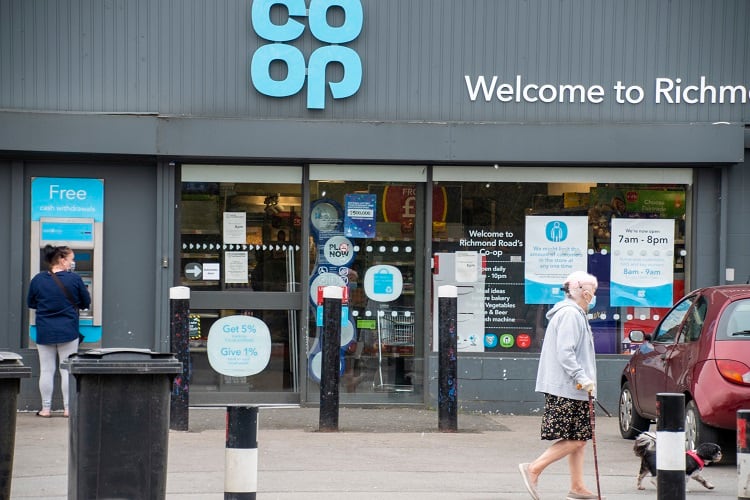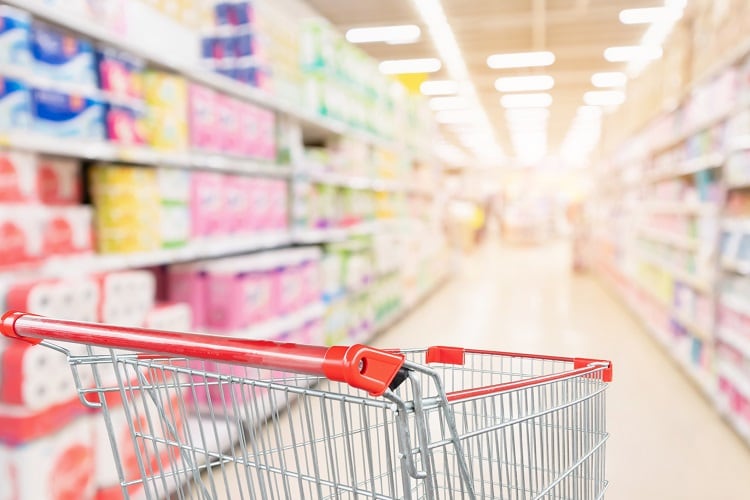Predicting trends is not dissimilar to ‘getting out a crystal ball’, according to Jo Whitfield, chief executive of Co-op Food UK, “everyone has a different point of view”.
So what does Whitfield’s crystal ball tell her? Speaking at start-up event Bread & Jam last month, the executive told delegates that food trends – as with all trends – ‘come and go’, however she predicts some are more likely to ‘stick’ than others.
Since the outbreak of COVID-19 in the UK, Whitfield has observed a shift in shopping missions. While consumers have increased their basket size and spend, they have made fewer transactions. This is one of the trends she predicts will fall into the ‘short-term’ category.
“I think that [trend] is about being restricted, needing to be more at home, and being [in] lockdown. So I think that trend will reverse.”
Others, she said, have real legs, including increased focus on convenience, value, sustainability, e-commerce, and in-home consumption.
A ‘surge’ for convenience top-ups
Since the novel coronavirus first spread across the UK and social restrictions measures impacted consumers’ movement, shoppers have increasingly spent more on ‘super charged’ top-up shops, said Whitfield.
In this way, consumers have replaced some of their ‘big shop’ spend at larger supermarkets with ‘planned top-ups’ at local stores. “We can see that these top-up shops are now accounting for about 22% of all convenience trips in the market. We have eyes in wholesale as well as what is happening for independent entrepreneurs,” she added.
This results in a fragmented basket, whereby ‘top-up’ shops complement purchases from larger stores or online deliveries – another area that has surged in recent months.
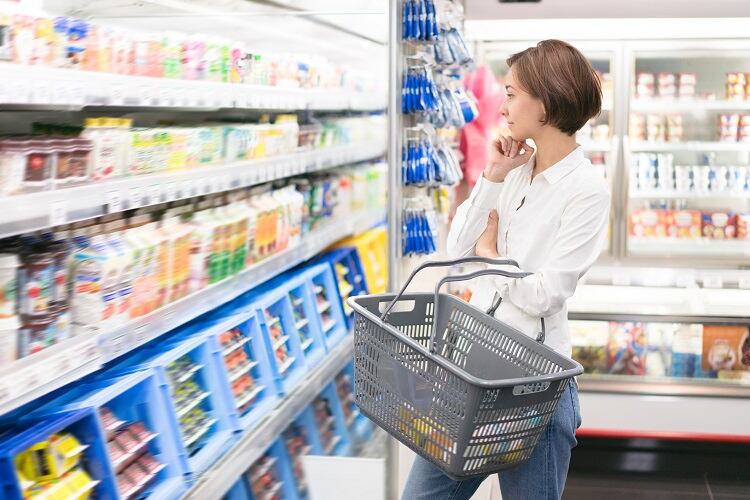
‘Massive’ demand for online
“Online is for sure the biggest change in shopping behaviour,” said Whitfield. “The demand for online slots far outstrips supply. The ‘big four’ [Tesco, Asda, Sainsbury’s, and Morrison] have massively increased the amount of capacity in this space and they’ve helped double the e-commerce share of the market to 13%.”
Co-op UK estimates that 19% of households have done at least one online shop during lockdown, and one in four of those have been ‘entirely new’ to online. “This is really interesting behaviour, and actually it’s behaviour that is likely to remain sticky to some degree.”
In the e-commerce space, Co-op UK has also noticed shoppers purchasing staple products with long shelf life, so as to be prepared in the case of unexpected isolation. While this could be put down to increased focus on value, Whitfield said is it ‘more likely’ related to greater planning in shopping missions and consumers’ ability to cope with ‘vastly changing government advice’.
Despite the booming e-commerce market, the Co-op executive stressed ‘this is not the death of the high street supermarket’. “There are missions for home consumption playing through…whether people shop [in-store] or whether they get it delivered.”
And where retailers haven’t had delivery operations in place, partners have ‘really played into this space’. “Partners such as Deliveroo have allowed retailers to reach customers quickly, in more locations, and actually in a really short response time, which I think…has given an advantage.”
In the future, the food executive predicts that consumers will be more discerning about exactly how food is delivered to their door, to ensure transport is as sustainable as possible. “My sense is that [the delivery] network is going to get even more local, even more green…the appeal of a van that comes from miles away isn’t where people’s heads are going to be at.
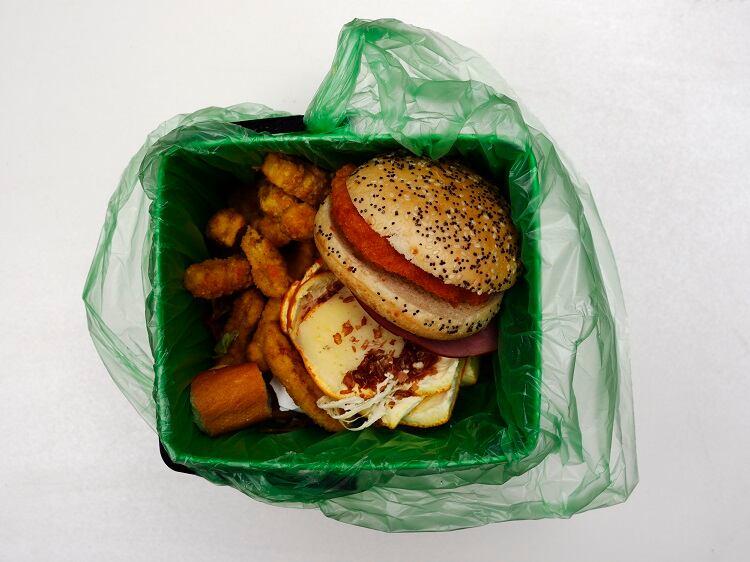
“They’re going to want to know that the footprint they’re leaving when online shopping is actually more sustainable.”
COVID has brought sustainability into ‘sharp relief’
Sustainability was, at the very least, an up-and-coming trend well before COVID-19 hit the UK. However, Whitfield said it has been brought it into ‘sharp relief’, as consumers make the ‘inextricable’ link between food systems and deforestation.
Consumers have ‘much more acute awareness’ of the impacts that some food categories and products can have on the environment. “I think vegan and plant-based products will continue to grow…and I think the ability to demonstrate [food’s] connection to climate will be an important differentiator in the market.”
The food executive predicts increased innovation in labelling and technology to help consumers make good choices. Blockchain, for example, could very well ‘have its moment’, as shoppers call for enhanced transparency and greater understanding of their individual carbon footprints.
Food waste is another focus area under the sustainability umbrella. “Fifty-one percent of people have said they’ve actually wasted less food under lockdown, and 45% of those said that is going to continue post-lockdown as well,” said Whitfield.
Certain behavioural changes, influenced by the pandemic, have helped curb food waste in the home. Co-op has observed increased demand for frozen foods, for example. “Data shows about 36% of people are keeping their freezers really well stocked, and 23% say they are going to continue to do that after lockdown,” we were told.
This is a trend Whitfield predicts is here to stay. While it certainly influenced by increased focus on value and recession concerns, the retail expert also believes it stems from increased awareness of food waste and consumers’ impacts on the environment. “So I think that will certainly stay with us.”
Another trend that helps combat food waste is scratch cooking. “It’s been really clear that we’ve all reignited this love of cooking. One-third of the nation is now enjoying cooking more…I think that’s about time and balance and being around the home more. [This is] definitely a shift in behaviour that will stick.”
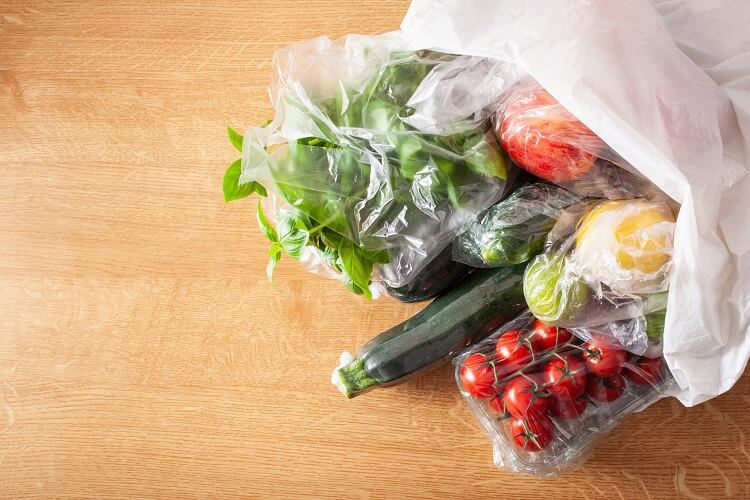
Of course these days, one cannot talk sustainability in retail without discussing plastic packaging – an issue that has been put on hold my many amid the pandemic.
“COVID has pushed us very much back to plastic,” said Whitfield. “Some of the momentum we had around plastic-free has had to go to the side for a period. The need for plastic packaging has increased, [together with] more protective layers and PPE…”
However, Co-op’s food lead said plastic-free packaging is still the overarching objective in the long-term. “As we’re coming out the other side there will be an increased awareness of the load that COVID has put on the environment.” From Co-op’s perspective, she added, the aim is unchanged: the retailer wants to use only 100% recyclable packaging for all its own-label products.
The ‘in-home’ opportunity
Another opportunity in retail comes from challenges facing the out-of-home and hospitality sector across the UK.
In the first wave of COVID-19, foodservice was shuttered. As the UK prepares to enter its second lockdown, the sector is again preparing to close its doors. “It’s a really precarious time for our pubs, clubs, and restaurants,” said Whitfield.
It will take time for the sector to recover, she told delegates, yet while it does, consumers will ‘still be looking for moments of enjoyment’. And herein lies ‘a real opportunity’ for retailers and food manufacturers. There is opportunity for brands to offer experiences to consumers to replace a dining or pub situation, Whitfield suggested.
“There is definitely something about moments of joy…about being able to celebrate with your loved ones, about being able to have some pre-COVID experiences in a different way… I think new events, new occasions, and great innovation…could actually get us through the next couple of years.”


